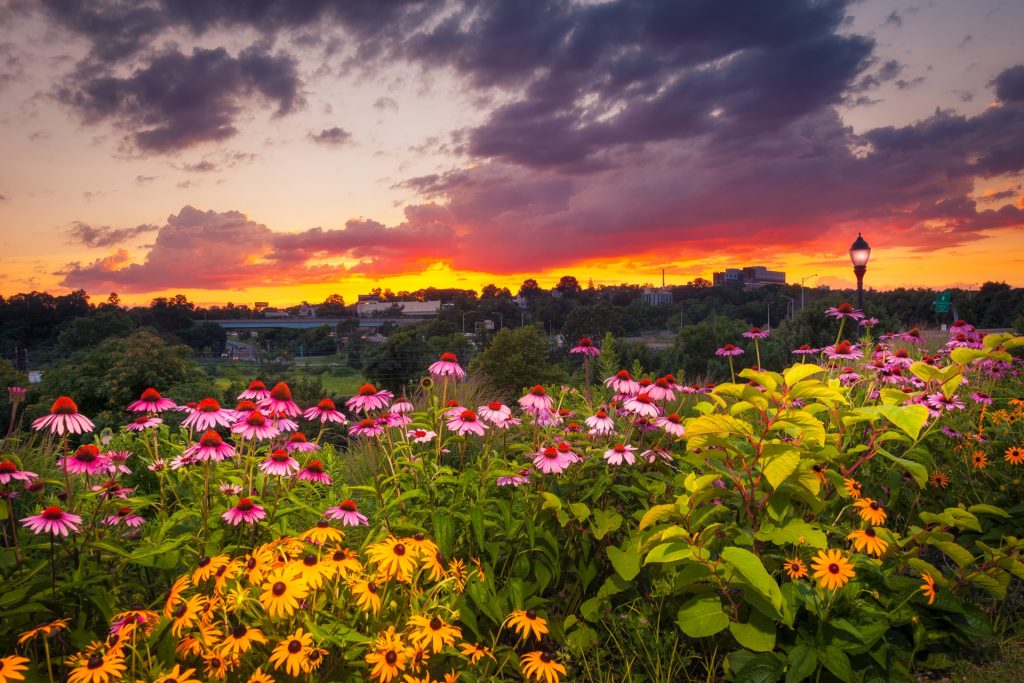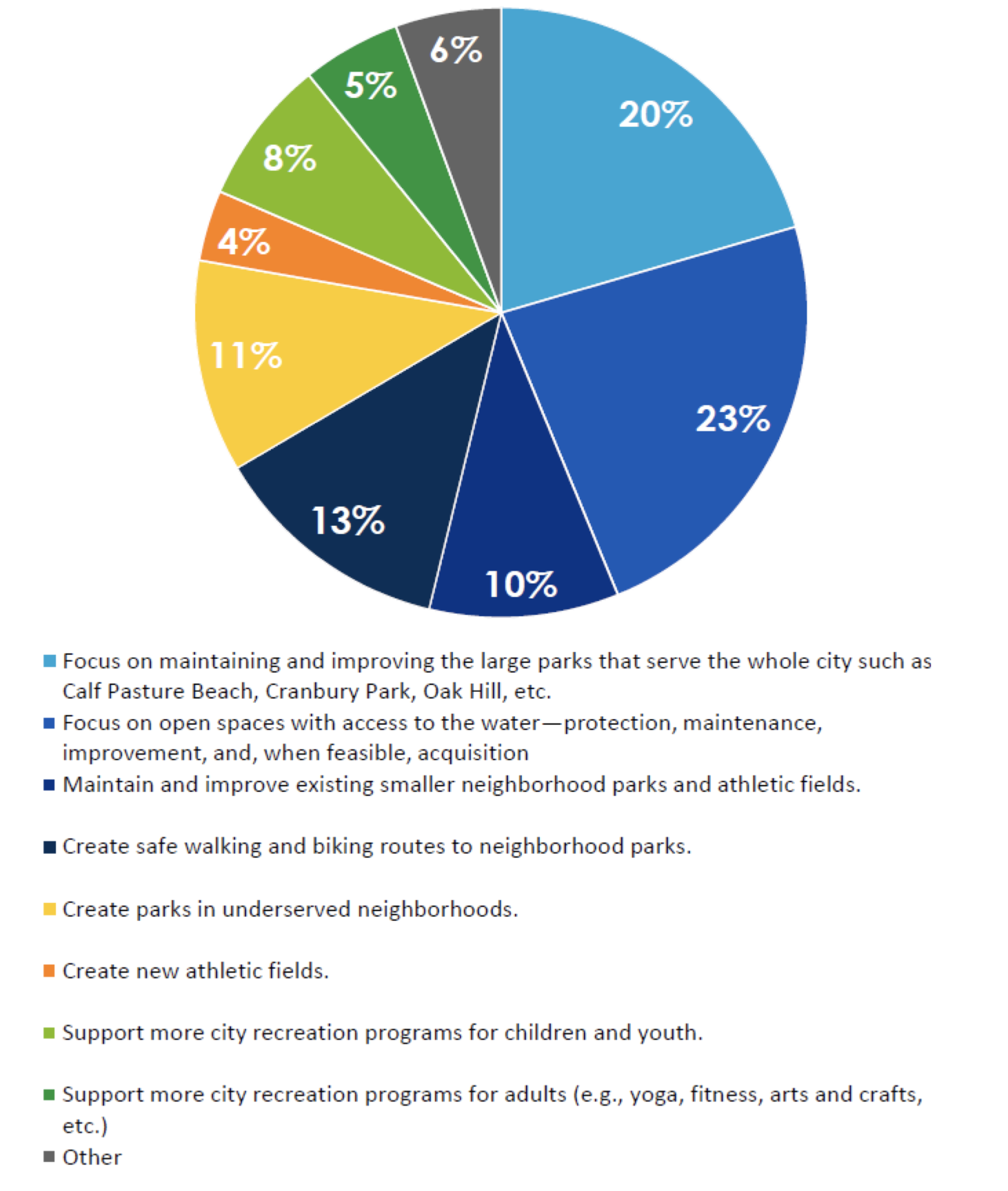July 3, 2018
 To find out what’s on the minds of Norwalk residents, the Norwalk Tomorrow citywide plan team held nine neighborhood-based workshops in March. In May, the team followed up with four more workshops for Norwalkers to discuss and comment on potential recommendations for major topic areas of the plan:
To find out what’s on the minds of Norwalk residents, the Norwalk Tomorrow citywide plan team held nine neighborhood-based workshops in March. In May, the team followed up with four more workshops for Norwalkers to discuss and comment on potential recommendations for major topic areas of the plan:
- Green, Sustainable, and Resilient Norwalk
- City Design
- Prosperous Norwalk (Economic Development)
- Connected and Complete Norwalk
Below is a summary of the workshop on Green Norwalk held on May 21, 2018. If you were unable to attend this workshop, you can view the full Green Norwalk presentation here. Don’t forget to take a short survey to let us know your opinion. The survey will be open until July 20, 2018.
Green Goals And Strategies
Four related “green” themes were the focus of this workshop: parks, open space, and recreation; sustainability and green practices; climate change resilience; and coastal management. The presentation by Larissa Brown of Stantec included background information on these topics and potential goals and strategies. All of these goals and strategies were based on the issues and opportunities that emerged in the previous community meetings, stakeholder interviews, committee discussions, analysis of current conditions, and best practices.
Of the over 40 attendees, approximately 26 participants asked questions and made comments during the presentation and were asked to complete several written exercises. Potential goals and strategies presented for discussion included:
Parks, Open Space, and Recreation
Goal: Norwalk has a connected green and blue network of parks, green streets, streams, and coastline.
Strategies:
- Give priority to completing the Norwalk River Valley Trail.
- Seek open space protection along Long Island Sound.
- Create a network of priority walking streets for tree planting.
Goal: Norwalk’s park and recreation system serves residents throughout the city.
Strategies:
- Develop a Parks, Open Space, and Recreation System Plan, including a management plan.
- Seek park opportunities in underserved areas of the city.
Sustainability and Green Practices
Goal: Make Norwalk city government a model of sustainability.
Strategy: Strengthen policies to reduce greenhouse gas emissions and promote renewable energy.
Goal: Norwalk reduces greenhouse gas emissions consistent with state goals.
Strategy: Adopt and maintain systems to evaluate and monitor sustainability efforts.
Resilience
Goal: Norwalk plans for and adapts to climate change.
Strategy:
- Prepare a climate change vulnerability assessment.
- Develop a long-term green infrastructure plan for stormwater management.
- Promote actions to mitigate increased heat.
Coastal Management
Goal: Protect Norwalk’s coastal environmental resources.
Strategy:
- Encourage the reduction of impervious surfaces and use green infrastructure for coastal water quality.
- Advocate for reduction of runoff pollution from state and interstate roads.
- Collaborate with nonprofits and others to further protect coastal wetland resources.
During the meeting, participants expressed general support for a new Parks and Recreation System Master Plan; giving priority to finishing the Norwalk River Valley Trail; and to investments in parks and public spaces that provide access to water. They also would like Norwalk to be a regional leader in sustainability and energy-efficiency and to develop a systematic approach to resilience and green infrastructure.
Green Priorities
In the first written exercise, participants were asked to indicate how they would allocate $100 in funding for parks, open space, trails and recreation (see chart below). About half the allocation would go to focusing on the large parks that serve the entire city, open spaces with access to the water, and, to a lesser degree, smaller neighborhood parks and athletic fields. In the second written exercise, participants were asked to provide their priority actions for the four themes covered in the workshop.

Priority actions listed by participants included:
- For Parks, Open Space, Trails and Recreation, comments focused on maintenance of existing parks and open space, completion of the NRVT, protection of remaining open space, and improving and increasing trails for walking, biking, and running.
- Sustainability priorities included more renewable energy projects, public education and incentives for sustainable practices and energy-efficiency, a plastic bag ban and similar initiatives, and stronger enforcement of existing laws.
- Resilience priorities focused on green infrastructure, stronger regulations and design requirements, green space in flood prone areas, protection of the wastewater treatment plant, and more public education.
- The Coastal Management priorities included initiatives and practices to reduce pollution, expansion of open space and public access, preservation of water dependent uses, and charging upstream wastewater treatment customers more to support expansion and protection of the wastewater treatment plant.
Information from the Green Norwalk topic workshop and survey will help guide the development of the draft plan over the summer 2018. Further opportunities for public comment in the fall will include a public open house, public review of the draft plan before adoption, and a public hearing at the Planning Commission when it considers adoption.




